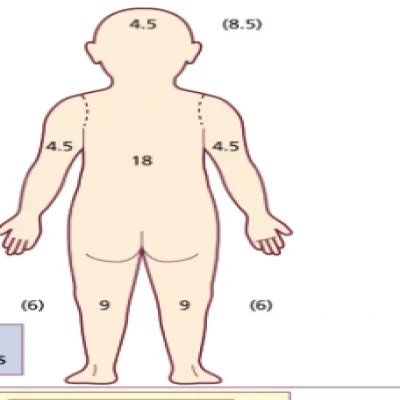مجلات علمية

24 Hour Flu | Do You Know What Is It and How Can It Be Treated?
24 Hour Flu is a short-lasting condition that is caused by a viral infection, it is also known as stomach flu it is characterized by diarrhea, vomiting and other digestive symptoms.
Is The 24 Hour Flu Really A Flu?
Of course not, there is no relationship between 24-hours flu and the real flu.
The real flu is caused by the influenza virus which leads to respiratory symptoms such as fever, cough, runny nose, fatigue, body ache, and other symptoms which last for several days and happen mostly in winter and fall.
So What Is The 24 Hour Flu Exactly?
Simply, it is an acute illness that happens because of an inflammation of the inner lining of the intestines and stomach, this illness is called viral gastroenteritis and some people call it a stomach bug.
Acute gastroenteritis may happen due to many reasons such as bacteria, parasites, or viruses.
But in the case of 24-hour flu, the main cause of gastroenteritis is a viral infection, in this case, symptoms may last for 24 - 72 hours.
Now let's know more about this illness. Symptoms, spreadability, causes, treatments, and prevention.
Symptoms Of 24-Hour Flu
After the person has been infected, symptoms appear on him within 24 to 72 hours, these symptoms include:
1-Nausea.
2-Vomiting.
3-Diarrhea.
4-Abdominal pain and abdominal cramps.
5-Fever of low grades.
6-Appetite loss.
7-Headache.
8-Muscles pain.
9-Fatigue.
You may ask about the difference between stomach flu and food poisoning.
Both have the same symptoms but food poisoning occurs due to parasites or bacteria that release toxins in the food.
Spreadability Of 24-Hour Flu
Unfortunately, this illness is highly spreadable (highly contagious) which means it can easily transmit from the infected person to others.
You can catch up the disease in several ways such as:
1-If you are in close contact with an infected person.
2-If you are in contact with contaminated objects or surfaces.
3-If you eat or drink contaminated foods and drinks.
Causes Of The 24-Hour FLu
As we mentioned before the 24- hour flu is a viral infection, there are two types of viruses that cause this condition:
1- Rotavirus
Mainly affects children under the age of two years and in some cases, it might be very dangerous and fatal, so that children and infants who get stomach flu with severe symptoms should be under observation.
Rotavirus vaccine is very important to protect children against the disease, it's an oral vaccine that is taken as drops through the mouth.
Rotavirus is taken in two doses; children should take the first dose before the age of 15 weeks and the second dose should be taken before the age of 8 months.
2- Norovirus:
Which affects people of all ages.
In the United States, norovirus outbreaks happen mainly between November and April.
Sometimes cases of stomach flu increase by 50% due to the development of new strains of norovirus.
These two viruses are found in the stool of infected people, so they can easily be transmitted to other people due to poor hygiene and ingestion of tiny particles of contaminated stool.
Treatment of 24-Hour Flu
Like most viral infections 24- hour flu is a self-limited disease which means it can be cured by the immunity system of our bodies and medications only to treat symptoms not to kill the virus.
In mild cases:
You can treat the condition by simple instructions such as:
1-Drinking plenty of water and liquids to avoid dehydration.
2-Eat plain and gentle foods to avoid stomach irritation, for example, rice, bread, and crackers.
3-Get rest to allow your body to fight the illness.
4-You can use some over-the-counter medicines to control nausea, vomiting, and diarrhea.
5-You can use some over the counter medicines to control cramps, headaches, and pain, but take care, some medicines may irritate your stomach which may worsen your case so you can ask your doctor or pharmacist to suggest you a suitable drug.
In severe cases:
You should ask for medical help and attention, if you suffer from any of these symptoms go to the hospital to consult with your doctor:
1-Dehydration symptoms such as dark urine, dizziness, and little amount of urine.
2-Bloody diarrhea or bloody vomiting (hematemesis)
3-Fever (body temperature above 40°c)
4-Your symptoms last for several days without improvement.
5-If you suffer from any other disease such as kidney failure.
Prevention Of 24-Hour Flu
Good hygiene is the most important thing that people should do to prevent and limit the transmission of stomach flu.
People should learn to wash their hands regularly especially after the following:
1-Using the toilet.
2-Caring for ill people.
3-Changing diapers.
4-Cleaning surfaces.
They also should wash their hands before doing these things:
1-Eating.
2-Handling and preparing food.
3-Giving medicine to someone.
Washing hands with water and soap for twenty seconds is enough to kill viruses that cause stomach flu but if you can't wash your hands, you can use an alcohol-based sanitizer.
There are other things people can do to prevent stomach flu transmission such as:
1-Using bleach-based cleaners to clean surfaces that the infected person deals with.
2-Wearing rubber gloves to clean affected areas and surfaces
3-People who have had stomach flu recently shouldn't prepare food for others for at least two days after the symptoms.
4-The clothes of an infected person should be washed on the highest heat possible.
Summary
24-hour flu is a viral disease caused by two types of viruses Rotavirus and Norovirus.
The main symptoms of this condition are diarrhea, nausea, and vomiting.
This is highly contagious that can transmit from an infected person to another one due to poor hygiene.
Treatment depends mainly on the management of the symptoms.
Mild conditions can be treated at home but if you have severe symptoms you should ask for help.
This disease can be prevented by following good hygiene procedures such as washing hands and cleaning surfaces with bleach-based cleaners.






